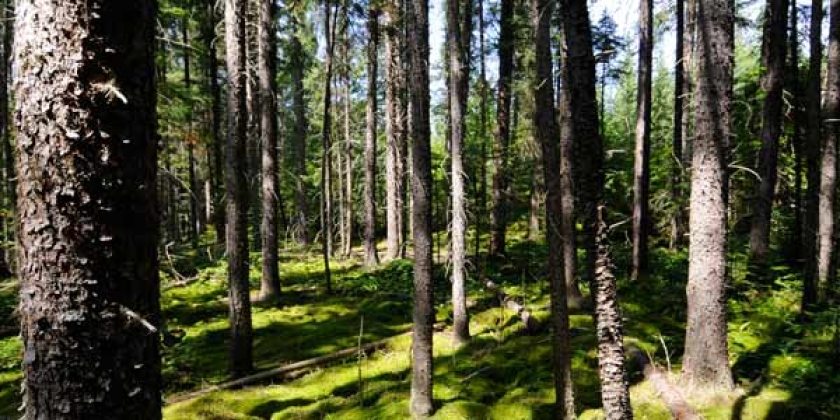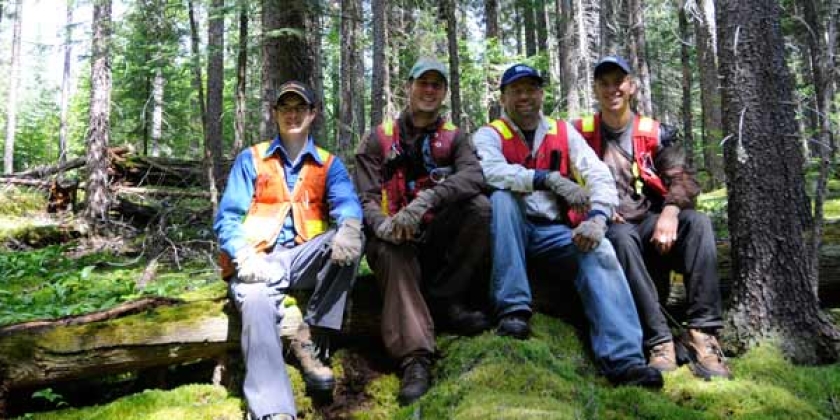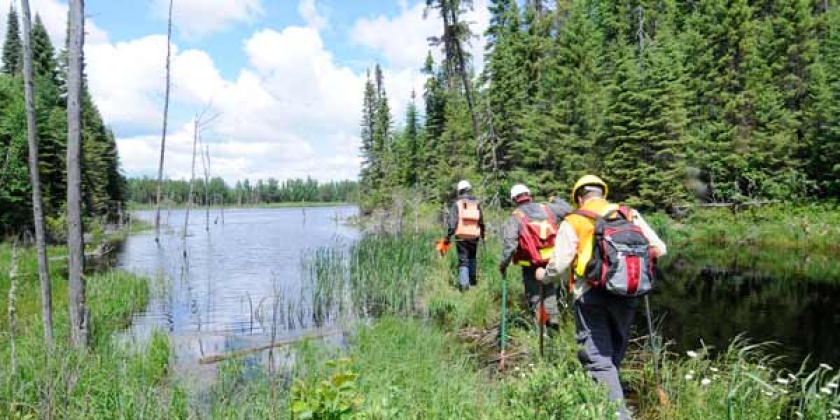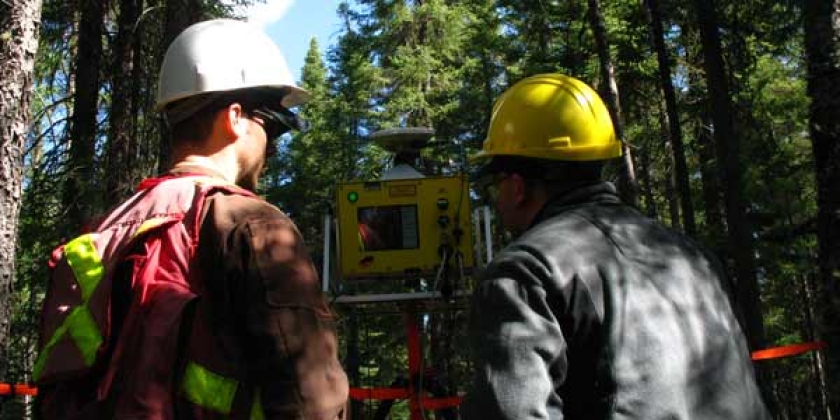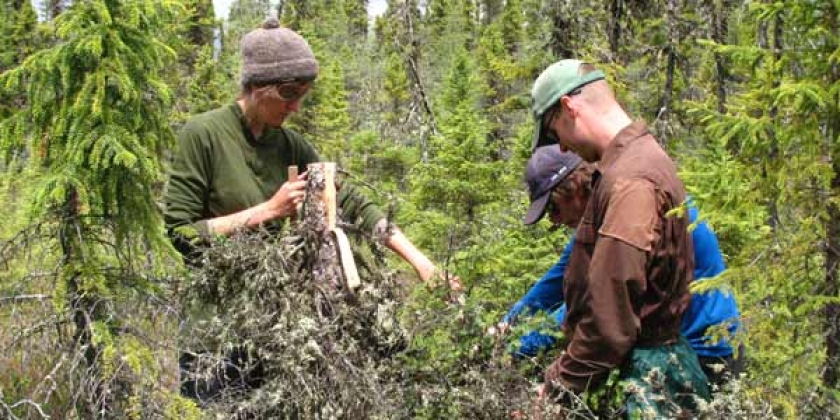Research in the Forest Resources Laboratory (FRL) at Nipissing University focuses on aspects of biology at the community, ecosystem and landscape levels of organization. Using the forests of the Great Lakes - St. Lawrence and Northeastern Boreal regions of Ontario as our natural laboratory, we explore patterns in the distribution, composition and productivity of plant communities, and the ecological drivers that produce these patterns. Ultimately, we strive to translate the knowledge we gain of ecological patterns on the landscape in to practical applications for forest resource management.
A major aim in our research is providing scientific knowledge to support the sustainable development of new forestry products in northern Ontario. Recently we have embarked on a long-term research program with the objective of developing ecological inventory and supply-management tools for Boreal forest resources. These resources include both the forest trees (sources of fibre, biomass and biofuels) and the understorey plants (sources of pharmaceuticals, nutraceuticals and foods). Species of interest include Black Spruce (Picea mariana), an important Boreal forest tree, and Ground Hemlock (Taxus canadensis), an evergreen shrub that is a source of paclitaxel, which is used in the treatment of various types of cancer. This list is expanding as the project develops, adding as many plant species as possible to the inventory.
Studies currently underway in the FRL are aimed at developing models of abundance, productivity and quality for each species of interest across the range of ecological conditions which occur in the Boreal forest. To reach this goal we use dendrochronology, digital image analysis, ecological land classification, geographic information systems and predictive ecological mapping techniques.
For more information on the FRL or any of our projects please contact Dr. Jeff Dech.

